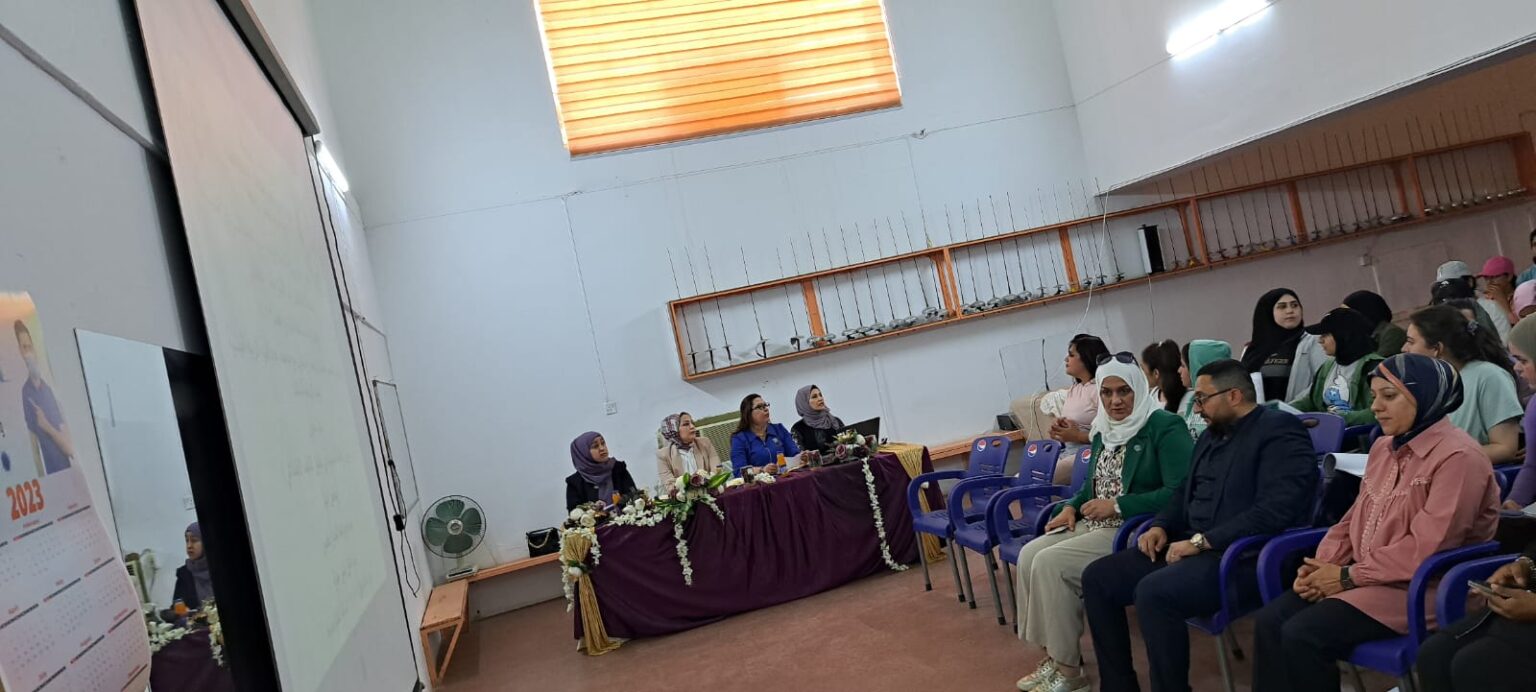The lecturers from the team sports department, Asst.Lect. Mariam Abdul Jabbar, and from the individual sports department, Asst.Lect. Ghufran Basheer, at the College of Physical Education and Sports Sciences for Girls at the University of Baghdad, in coordination with the Ministry of Youth and Sports / Department of Studies and Development of Staff and Youth Leadership / National Observatory Department, held a scientific seminar titled (The Role of School Sports in Achieving Social Adaptation). The seminar was sponsored by the Minister of Youth and Sports, Mr. Ahmed Al-Mubarqa, and supervised by Engineer Abdul Khaleq Al-Khafaji. They were hosted in the fencing hall of our college under the supervision and attendance of the Dean of the College, Prof. Dr. Fatima Abd Maleh.
The two lecturers clarified the concept of social adaptation as the individual’s ability to respond to and accept others, and initially to accept oneself and one’s own identity. An individual feels happiness and psychological comfort in their life due to their compatibility with their society and its members. Manifestations include psychological comfort, the ability to overcome all obstacles and problems faced in life, individual excellence in work, not suffering from any diseases resulting from psychological problems such as heart disease, diabetes, and hypertension, the individual’s ability to set realistic goals and strive to achieve these goals, the ability to understand the consequences of actions and self-regulation, the ability to form relationships with others based on mutual trust, the individual’s ability to bear the responsibilities entrusted to them, love for others, and the willingness to serve and sacrifice for them.
They also pointed to the main factors of school adaptation, including maturity, learning, and personal and social adaptation. In the early years of a child’s life, talking and walking are among the most important manifestations of adaptive behavior. When a child enters school, academic achievement becomes a primary indicator of the child’s social adaptation in school. As a student progresses from one stage to another, their maturity and increased learning experiences contribute to the improvement of their adaptation level. In adulthood, the individual’s ability to take responsibility, their self-reliance, and their ability to properly fulfill their personal and social demands are the most prominent social adaptive behaviors.
They also provided examples of the role of the physical education teacher and how they deal with potential problems, which could be summarized as follows: problems with absence, tardiness, and irregularity in school, issues of academic weakness or failure, behavioral, moral, or religious problems, problems of maladaptation, emotional problems, health issues, family problems, and problems with occupying free time.
